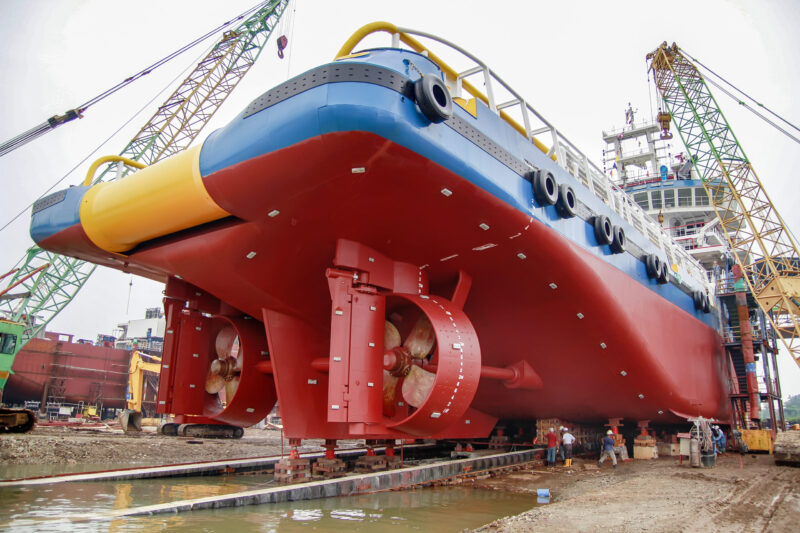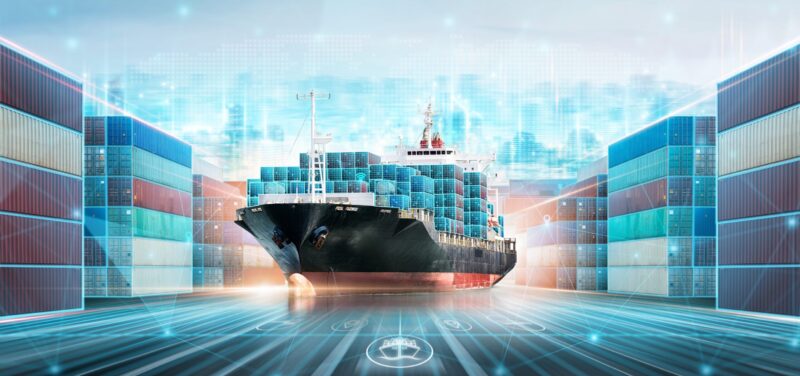
This site
is mobile
responsive

Malaysia has a long maritime history that dates back to the 15th century, with Malacca serving as the world’s most important trade and shipping hub. This rich historical background has provided a solid foundation for the growth and prominence of Malaysia’s ship building and ship repairing (SBSR) industry, which serves as the backbone of the country’s thriving maritime sector. According to the Malaysia Marine Department, the number of ships arriving at Malaysia’s ports, both local and foreign, experienced a growth of approximately 20% in 2022 compared to 2021.
In 2022, the Malaysian Investment Development Authority (MIDA) approved five projects with a total investment of RM363 million, surpassing the pre-pandemic levels in 2019 (RM357.2 million). In addition, the value of maritime exports reached RM713.8 million in 2022, reflecting the high quality and competitiveness of locally built vessels and maritime products. These achievements underscore the industry’s potential and set the stage for even greater accomplishments in the future.
Globally, there’s a rising demand for environmentally friendly vessels that prioritise fuel efficiency, reduced emissions, and sustainable materials, aligning with Environmental, Social, and Governance (ESG) principles. Malaysia, aiming to achieve net-zero carbon emissions by 2050, is steering the industry toward integrating ESG principles into their services.
This shift presents an opportunity for Malaysian shipyards to embrace advanced technology. Imagine the pivotal role of robotics in inspections and maintenance or the application of virtual reality and digital twin technologies to streamline ship design and precise performance testing. Commitment to innovation ensures Malaysia stays at the forefront of the maritime sector.
The Malaysian government is steadfast in its support and facilitation, as evident in the 2023 Budget. It expands the Maritime and Logistics Scheme under Bank Pembangunan Malaysia Berhad to encompass not only the oil and gas sector but also the SBSR industry. This move aims to provide financial support and resources to foster growth and innovation. Additionally, the government extends tax exemptions for the SBSR industry until 31 December 2027, aligning with Malaysia’s ambition to become Asia’s leading SBSR hub.
Industry players are encouraged to capitalise on these incentives to modernise their facilities and invest in smart technologies that ensure compliance with international shipping regulations from the outset of shipbuilding. This is crucial to maintaining a competitive edge globally.
Sea transportation remains the major and cost-effective means of goods transportation. The objective is for Malaysia to establish itself as a leading Shipbuilding and Ship Repair (SBSR) hub in Asia. Given its expertise in repair and maintenance, Malaysia is well-suited to excel in shipbuilding and repair, particularly due to its strategic location at the intersection of major global sea routes. With careful planning and concerted efforts, this vision can be realised.
To learn more about the SBSR industry and its supports, please contact Oil and Gas, Maritime and Logistics Services Division MIDA at https://www.mida.gov.my/staffdirectory/oil-and-gas-maritime-and-logistics-services-division/
